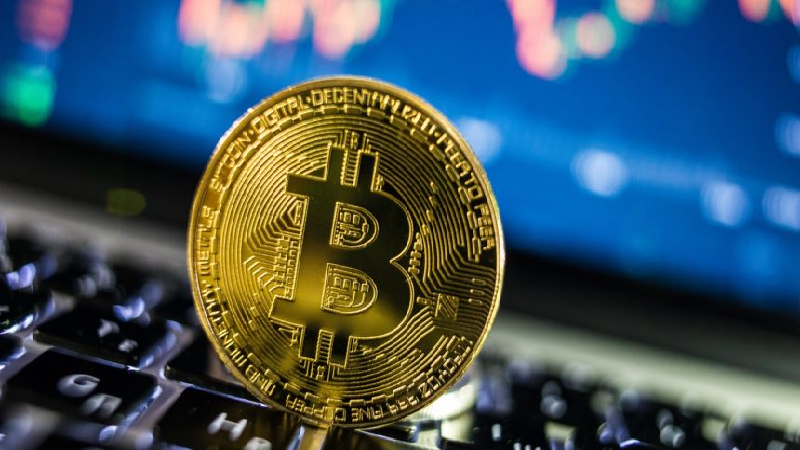The Bitcoin currency has been shrouded in reports suggesting that it acts mainly as a tool for criminal networks around the world to evade legal accountability and financial tracking, while tech fanatics claim the currency is a step toward fighting the corruption and control of the global financial system. For the ordinary person, it’s difficult to discern fact from fiction in an already confusing subject.
One Bitcoin proponent, and the CEO of a young financial technology startup called Paxful, describes the use and creation of an account in the currency as a “spreadsheet” similar to traditional bank accounts, but without the risk of central bankers changing values and balances on a whim.
“All Bitcoin really is, is a spreadsheet. It’s a spreadsheet that no one person can go in and change and it’s cool because your bank account is basically also a spreadsheet…
However, a central banker can go in and change his balance by up to a trillion dollars by hitting the enter button and it’s done,” CEO of Paxful, Ray Youssef, told VOC this week.
“You cannot create the most monstrous form of riba (usury) by pressing the enter button, so in that sense Bitcoin is honest money and every human being – particularly Christians and Muslims – should be very interested in that concept.”
Youssef said that similar to gold, and unlike modern currencies, the intrinsic value of Bitcoin resides in its work – that is to say, the work that is required to create a single Bitcoin.
“The amount of Bitcoin that can be created is limited…the Bitcoin is backed up by work which makes it honest money and possibly the only form of halaal money in the world besides gold… work is done to create Bitcoin,” he said.
Essentially, Bitcoin allows individuals to take any form of money (currency) in the world and turn it into any other form of money through its exchange on various platforms. However, its use is not limited to global currency exchange.
Bitcoin is more versatile and flexible than many understand and can even be traded for other services and payments, according to Youssef.
But with that said, using Bitcoin platforms as a means of investment is risky and is not encouraged by him.
“It gives every human being in the world access to every single financial network in the world…[but] if you’re looking for a safe haven for your wealth, Bitcoin is very risky.”
“I would caution all people out there to avoid all the new coins [new forms of cryptocurrency] and get out of the ‘get rich quick’ mentality, which is one of the dangers of riba.”
While the currency is regarded by Youssef as a potential “salvation” from riba, he added that the currency is only useful if the human network holding the currency is responsive.
“Look into it as a means of exchange, not as a means of investment,” advised Youssef.
Islam and cryptocurrency
Shaykh Ziyaat Isaacs, a consultant and lecturer at the International Peace College of South Africa in Islamic finance and banking, says that while scholars cannot outrightly say, from an Islamic perspective that cryptocurrency is haram, Muslims need to understand two things from an Islamic perspective in how we look at these cryptocurrencies.
The first thing Muslims need to investigate and consider is the principle of social concurrence or mutual agreement. The second one is the exchange activity.
“When someone offers me something, I have the right to scrutinise, question, identify and do my due diligence to ascertain whether the medium of exchange is worth the value I’m exchanging for. [Secondly] we need to look at what is actively exchangeable,” said Shaykh Isaacs.
“Islamic scholars around the world have mixed views on the use of these digital currencies and the views range from being permissible, to requiring caution and some outrightly prohibit cryptocurrency. If we talk about riba and we have riba in our physical coins or bank notes, in the same way we’d have them in cryptocurrency if it’s pegged against global interest rates.”
“The sharia emphasises real economic activity based on physical assets and frowns more upon pure monetary speculation.”
The “don’ts” of cryptocurrency, according to Shaykh Isaacs, are as follows:
- Where it is marketed or punted as a get rich quick scheme, it’s definitely a don’t. For Muslims. it would be an easier option to protect ourselves and to invest or participate – if we want to – through those who have been shariah compliance recognised
- There’s no get-rich-quick scheme in the cryptocurrency game – although it’s been marketed like that
Three cryptocurrency platforms mentioned by Shayk Ziyaat as worth looking into from an Islamic perspective were Lumen (XLM), OneGramCoin (OGC) and X8 – Stable Coin.
Listen: Ray Youssef
Listen: Shaykh Ziyaat Isaacs
VOC






 WhatsApp us
WhatsApp us 

